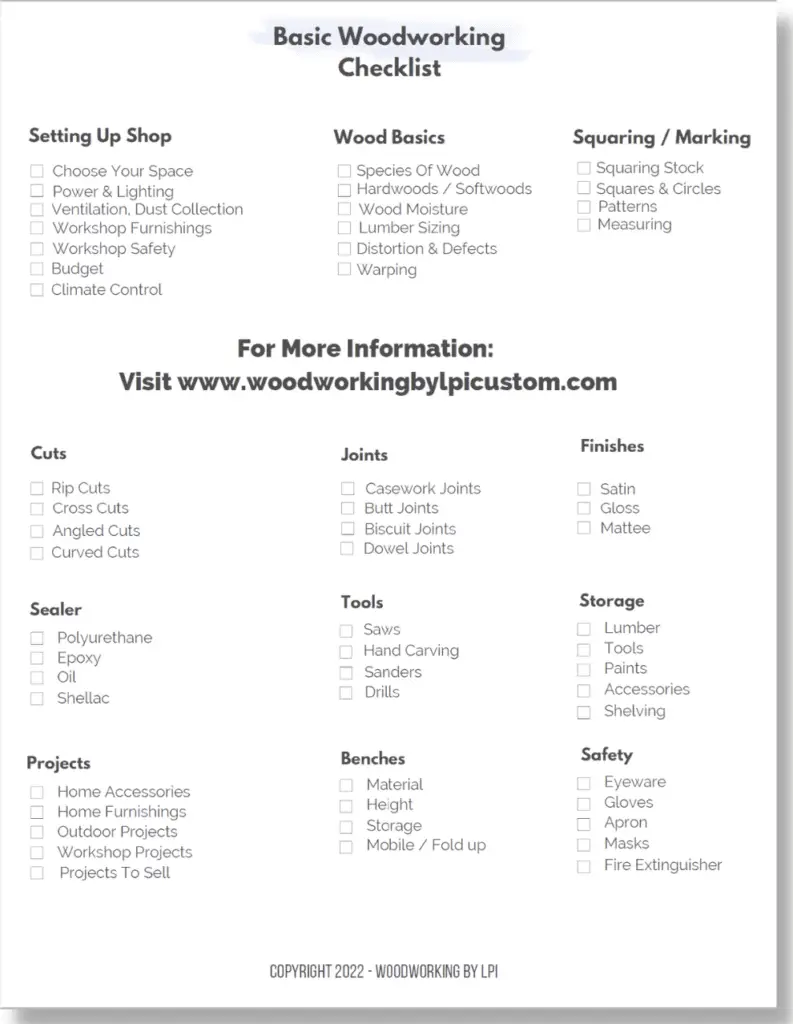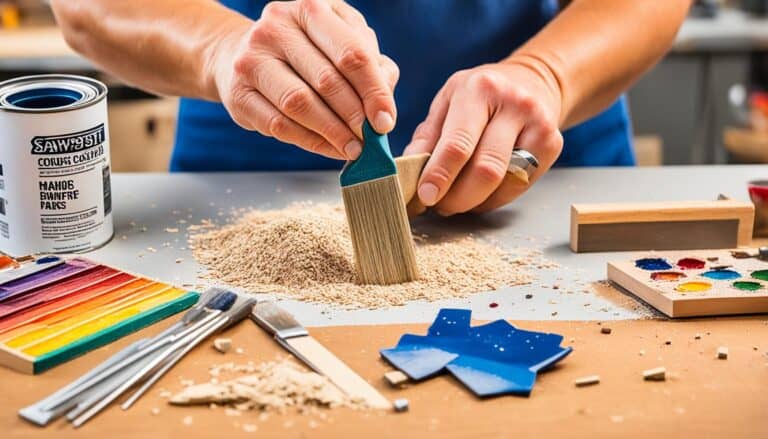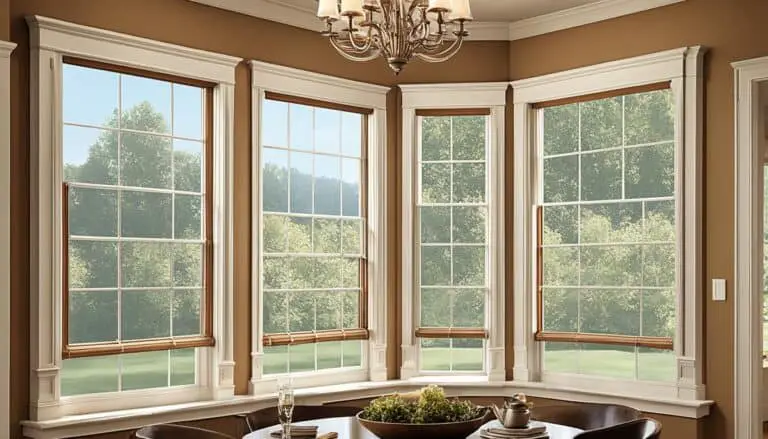
If you are looking to protect your wood projects outdoors you may want to consider epoxy paint for wood. Epoxy paint is waterproof paint that can be used on wood to protect it from the elements.
This type of paint is perfect for exterior wood outdoor use and if you are placing it on concrete surfaces, as it will not only protect the wood from water damage, but also from UV rays and other environmental factors.
Epoxy paint is an excellent choice for waterproofing wood projects that will be exposed to the elements. This type of paint is durable and long-lasting and will provide years of protection for your woodworking projects.
Applying epoxy paint to wood is a simple process, and can be done with a brush, roller, or sprayer. For best results, it is important to follow the manufacturer’s instructions carefully. Once the epoxy paint has been applied, it will need to cure for 24 hours before the project can be used.
What Is Epoxy Paint
Epoxy paint is a two-part paint system that consists of a resin and a hardener. When mixed, these two components create a tough, durable finish that is perfect for protecting wood projects from the elements.
Epoxy paint is available in a variety of colors, so you can choose the perfect shade to match your project. This type of paint is also very easy to apply and can be done with a brush, roller, or sprayer.
Why Use Epoxy Paint For Wood?
There are many reasons to use epoxy paint for woodworking projects. This type of paint is very durable and will protect the wood from water damage, UV rays, and other environmental factors.
Epoxy paint is also an excellent choice for projects that will be exposed to the elements, as it is resistant to fading and peeling. This type of paint is also very easy to apply and can be done with a brush, roller, or sprayer.
How To Waterproof Wood
There are a few different ways to know how to waterproof wood, but epoxy paint is one of the most effective. This type of paint is a two-part system that consists of a resin and a hardener. When mixed, these two components create a tough, durable finish that is perfect for protecting wood projects from the elements.
Applying an epoxy coating to wood is a simple process, and can be done with a brush, roller, or sprayer. For best results, it is important to follow the manufacturer’s instructions carefully. Once the epoxy paint has been applied, it will need to cure for 24 hours before the project can be used.
If you are looking for a way to waterproof your woodworking projects, epoxy paint is an excellent choice. This type of paint is durable, long-lasting, and easy to apply. once it has cured, epoxy paint will provide years of protection from the elements.
How To Use Epoxy Paint For Wood

Generally speaking, when you want to seal your wood project with epoxy it is straightforward. Much like when you apply a stain and sealer, such as Polyurethane, there are steps you need to perform first.
Let’s look at the steps you need to perform.
Prepping Surface With Sanding – Most wood projects and species of wood are not conducive to accepting Epoxy Resin applications right off the bat.
You will need to prepare the wood surface to accept the stain, paint, and eventually the Epoxy Resin. Sanding your wood surface with fine-grit sandpaper to a smooth finish is crucial. If you want to know the details on how to sand your wood project you can get all the information here.
Now you have your sanded wood, and your project you will need to clean off the surface with a vacuum and a microfiber cloth to ensure it is clean of debris and dust.
Priming (If You Are Using Paint) – If you are using paint it is a good strategy to use a water-based primer-sealer for the best adhesion of your Epoxy paint.
This will prevent penetration of the weather elements, such as water and humidity. More importantly, it will prepare your wood project to accept the Epoxy Resin you are going to apply.
Applying Epoxy Resin – Once you have the surface of your wood project prepared you will need to mix the Epoxy Resin with the hardening agent.
This is typically in a 1:1 measure method. Please note that when you mix your hardener into the Epoxy Resin you will have a limited amount of time to apply before the Epoxy Resin is no longer workable.
You can apply with a brush or a roller with provides the best results. Additionally, you will need to look at the surface and ensure that you have a consistent and level application so that when the Epoxy Resin dries it provides the best effect and protection.
If you need help knowing how to waterproof wood using Epoxy Resin, you need to how much to mix and apply here is a Resin Calculator which will help.
Types Of Waterproofing
There are a few different types of techniques available for waterproofing wood, but epoxy paint is one of the most effective. This type of paint is a two-part system that consists of a resin and a hardener. When mixed, these two components create a tough, durable finish that is perfect for protecting wood projects from the elements.
Applying epoxy paint to wood is a simple process, and can be done with a brush, roller, or sprayer. For best results, it is important to follow the manufacturer’s instructions carefully. Once the epoxy paint has been applied, it will need to cure for 24 hours before the project can be used.
Recommended Epoxy Resin

ArtResin – Epoxy Resin – Clear – Non-Toxic – 1 gal (0.5 gal resin + 0.5 gal hardener) (3.78 L)
- Non-toxic when used as directed. (1 gal kit = 0.5 gal resin + 0.5 gal hardener)
- No VOCs. No BPA. No fumes. Non-flammable. Certified food is safe.
- UV and HALS stabilized for unparalleled yellowing protection
- Easy to use 1:1 mixing ratio; 1 gal covers approx. 32 sq ft
- High-gloss. Self-leveling. Formulated specifically for the art. Made in the USA.
Get On Amazon Here
Best Tips For Applying Epoxy Paint For Wood
Epoxy paint is a two-part paint system that consists of a resin and a hardener. When mixed, these two components create a tough, durable finish that is perfect for protecting wood projects from the elements. Applying an epoxy coating to wood is a simple process, but there are a few things to keep in mind for the best results:
– Be sure to follow the manufacturer’s instructions carefully.
– Mix the epoxy paint thoroughly before use.
– Apply epoxy paint with a brush, roller, or sprayer.
– Allow the epoxy paint to cure for 24 hours before using the project.
– If necessary, sand the epoxy paint once it has cured to create a smooth, even finish.
By following these tips, you can ensure that your epoxy-painted woodworking project will turn out to look great and last for years to come.
Epoxy Resin Versus Polyurethane
When it comes to the choice of waterproofing your wood projects which is better Epoxy Resign or Polyurethane? When you get right down to it, it depends on the purpose and personal opinion. Each of these has its advantages and disadvantages.
Advantages
- Thickness: When you use Epoxy Resin they typically build a coating thickness of 8 to 15 mils per application. Additionally, using the Epoxy Resin it is easier to level the application as it is a liquid and is self-leveling. Polyurethane will take several applications to build up a greater thickness and take a lot more time on your wood project.
- Installation & Performance: Once you allow the Epoxy Resin to cure it provides a very durable, hard, and impact-resistant surface that protects your wood project. It is easy to install with the two-part Epoxy Resin and hardener and once applied and cured you are good to go. Polyurethane is about the same in ease of installation and the cure time is approximately the same.
Disadvantages
You may or may not know it but Epoxy Resin applications also have a downside. Although Epoxy Resin can protect your wood project from weather such as water and humidity, it is susceptible to UV light. Polyurethane coatings however are not as susceptible to UV light.
- UV Stability: Polyurethanes provide great UV resistance. When used as a top coat over epoxy, they protect the underlying epoxy from yellowing over time. However, it may be noted that Polyurethane coatings, approximately 6 months to a year when exposed to direct weather, don’t last as long as Epoxy Resin and should be a consideration when choosing the Polyurethane coating solution.
- Finishes: Epoxy Resign offers a great high gloss look when completed. However, you don’t have the options that Polyurethane does. Polyurethane finishes can provide a wide range from satin to semi-gloss to high-gloss.
Of course, the choice is yours, but I wanted to provide options for you to consider. Both sealing and waterproofing your wood project if your intent for your wood project is to be placed outside in the weather elements, both have advantages and disadvantages.
Add Color To Epoxy Resin For Wood
Are you looking to waterproof your wood project with color? There are many Epoxy paint options. As mentioned above this is a two-part Epoxy Resin solution but with color expanding your options to protect and be creative with your wood projects.
To effectively use the Epoxy paint solution there are a couple of extra steps to consider.
Recommended Epoxy Paint Primer

Rust-Oleum Corporation 256261 Maximum Adhesion Primer, 1-Gallon, White
- Water-base primer-sealer
- Interior and exterior
- Use with any topcoat, including solvent-based and epoxies
- Outstanding wet adhesion in moist or humid environments
- Get On Amazon Here
Add Paint – This is where it gets exciting as you can use any color you want to either match your wood project or create a new wood project. Other options include mixing more than one color for a greater effect. Look at this as you would any paint project and how you would approach it with the consideration of color. You will want to use oil-based paint as it mixes well and adds more protection to your wood project.
Once you have your color picked you can mix it with the Epoxy part of the two-part solution. Once you have your surface prepped for accepting your Epoxy add your hardener then apply it to the wood project.
Recommended Epoxy Paint Products

Rust-Oleum 206999 Marine Topside Paint, White
- UV resistance
- Durability in extreme weather conditions
- Gloss retention
- Get On Amazon Here
Adding Color To the Epoxy
Epoxy Primer – You will need to add an Epoxy Primer as the paint cannot adhere directly to bare wood. Knowing this you will need to first prime your wooden surface with an acrylic latex primer before applying any paint. They come with the option of darker and lighter shades which allows you match to your wood project.
Frequently Asked Questions – Epoxy Paint For Wood
Can Epoxy Paint Be Used On Wood?
Yes, epoxy paint can be used on wood. This type of paint is a two-part system that consists of a resin and a hardener. When mixed, these two components create a tough, durable finish that is perfect for protecting wood projects from the elements.
Applying to wood is a simple process, and can be done with a brush, roller, or sprayer. For best results, it is important to follow the manufacturer’s instructions carefully. Once the epoxy paint has been applied, it will need to cure for 24 hours before the project can be used.
Does Epoxy Paint Make Wood Waterproof?
Yes, epoxy paint makes wood waterproof. This type of paint is a two-part system that consists of a resin and a hardener. When mixed, these two components create a tough, durable finish that is perfect for protecting wood projects from the elements.
Applying to wood is a simple process, and can be done with a brush, roller, or sprayer. For best results, it is important to follow the manufacturer’s instructions carefully. Once the epoxy paint has been applied, it will need to cure for 24 hours before the project can be used.
Does Epoxy Seal Stick To Wood?
Yes, epoxy seal sticks to wood. This type of paint is a two-part system that consists of a resin and a hardener. When mixed, these two components create a tough, durable finish that is perfect for protecting wood projects from the elements.
How Do You Prepare Wood for Epoxy?
The best way to prepare wood for epoxy is to sand it down and then wipe it clean with a damp cloth. Once the wood is sanded and clean, you can mix the epoxy paint according to the manufacturer’s instructions and apply it to the wood.
How Do You Waterproof Painted Wood Outdoors?
There are several ways to waterproof painted wood outdoors. One way is to apply a sealant or varnish over the top of the paint. Another way is to mix epoxy paint with a waterproofing agent before applying it to the wood.
How Can I Waterproof Wood Cheaply?
There are several ways to waterproof wood cheaply. One way is to apply a sealant or varnish over the top of the paint. Another way is to mix epoxy paint with a waterproofing agent before applying it to the wood.
How Long Does a Waterproof Wood Finish Take to Dry?
Many different finishes dry at different rates. Things that impact the drying rate are outdoor temperature, and humidity and will play a part in the drying process. Oil finishes usually take longer to fully dry (24 to 48 hours), but sealants can usually dry faster. Drying times vary from 24 hours to 14 days.
Is Waterproof Sealant for Wood Long Lasting?
Generally, two years is the rule of thumb when you look at a sealer on wood projects. There are factors to consider, such as the location of the wood project and the amount of weather or exposure to the elements they may get.
Is Wood Oil Waterproof?
Wood Oil provides water resistance, not waterproofing. If you are wanting to place a wood project less exposed to the elements such as an outdoor structure where it will not be directly exposed this may be a good solution.
Are Wood Waterproof Sealants Safe?
In general, they are safe to use as long as you take precautions such as a well-ventilated area and the use of Nitro gloves. Some of the products can be a little more toxic and contain VOC which may require the use of a mask. Consult the directions and manufacture instructions before using.
Are Interior Sealers Good for Use Outdoors?
The general rule of thumb is interior sealers are not for outside use. The primary thing to consider is UV protection. For example, Polyurethane is a good solution for outdoor use, however, will require another application within a year. Take into consideration the weather elements you’re exposing the wood project to and use exterior products when possible for best results.











